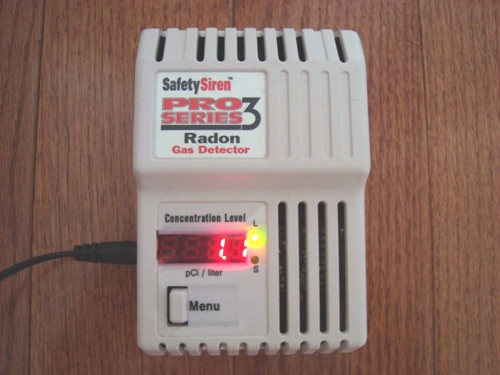You are here
Are Granite Countertops Hazardous to Your Health?
In July 2008, the New York Times published an article that raised public concern over potential health hazards of living around granite countertops and floors.
At issue is whether granite emits dangerous amounts of radon, a colorless and odorless gas that is known to cause lung cancer.
Most radiation experts who have tested samples of granite for radon feel that the risk is minimal. The amount of radon emitted by most types of granite is quite low and perhaps insignificant when compared to the radiation that all of us are exposed to every day from the sun, the earth's crust, and electrical appliances, to name a few sources of "background radiation."
But some researchers like William Llope, professor of physics at Rice University, have tested some samples of granite to emit radiation at levels that are a hundred times greater than what's generally considered to be safe.
Radon is a radioactive gas that is created by the natural decay of uranium found in water, rocks, and soil. The majority of physicists and radiation experts agree that the most significant risk comes from radon that seeps into a home through the ground.
Some areas in Pennsylvania, New Jersey, and upstate New York are known for high radon concentrations, so much so that sometimes, a radon test is required for a bank to issue a mortgage on a home.
Regardless of where you live, if you have granite in your home or you're thinking of installing it, I think it's prudent to have radon levels measured to make sure that you are not putting yourself at risk of lung cancer.
Some hardware stores carry one-time radon testing kits, but a far better choice would be to purchase a relatively inexpensive radon gas detector that runs all the time - one that I can recommend is the Safety Siren Pro-3 Radon Gas Detector.
We have this radon detector in our work and living areas for the peace of mind that it brings.
This radon gas detector has a digital display that shows short term levels as well as long term averages. Just like a smoke or carbon monoxide detector, it continuously monitors for radon.
If you don't have granite in your home and you're thinking about installing it, I encourage you to consider the potential risk to your and your family's health - the risk is quite low, especially if you test before you install, but it never hurts to test materials to make sure that you are not in danger.
Join more than 80,000 readers worldwide who receive Dr. Ben Kim's free newsletter
Receive simple suggestions to measurably improve your health and mobility, plus alerts on specials and giveaways at our catalogue
Highest RatedNo articles have been rated for usefulness recently, please check later. | Related Posts | ||











